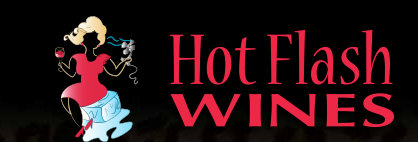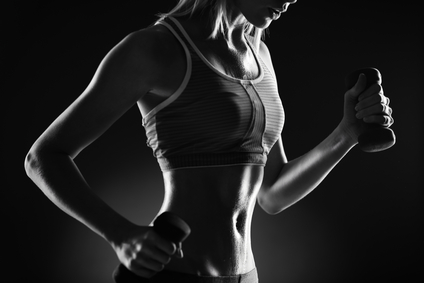Newsflash! Severe hot flashes? Keep an eye out for bone health!
Heads up! If you experience moderate to severe hot flashes and night sweats, you may be at higher risk for lower bone density and in turn, a higher rate of hip fractures than women without these symptoms. These study findings were published online yesterday in the Journal of Clinical Endocrinology & Metabolism,
A bit of background…researchers prospectively examined data from over 23,000 women participating in the Women’s Health Initiative study who did not use hormones. The goal was to assess the association, if any between vasomotor symptoms, that is, hot flashes and/or night sweats, and bone mineral density. In turn, they collected self-reports of fractures (i.e. hip, spine, non-vertebral) on a semi-annual basis; these were subsequently confirmed by reviewing medical records.
The findings? Over an average of eight years, women who reported moderate to severe hot flashes or night sweats had almost twice the risk for developing a hip fracture over the time period of the study than women who did not, regardless of a younger age or higher body mass index, or other factors such as time since menopause, race/ethnicity or physical activity. And, while additional analyses did slightly reduce this risk, moderate to severe vasomotor symptoms remained a significant risk factor for hip fracture over the study course. Additionally, the findings demonstrate that women with more severe symptoms had lower bone mineral density measures over time in the hip joint and spine.
Although it’s unclear, the researchers note that lower estradiol levels may account for the association between more severe symptoms and lower bone mineral density (as, data have shown that women with higher estradiol levels during menopause tend to have lower rates of bone loss). Regardless, having more severe flashes and sweats should raise a few red flags for women and their practitioners and prompt greater attention to lifestyle strategies for preserving bone mineral density. This topic has been covered thoroughly on Flashfree, and strategiest include diet, weight-bearing exercise and adequate sun exposure.
Read More
There’s a new wine in town…
I love wine. I drink it regularly, even if it tends to promote a bit of heat of the hot flash variety. And, while I am certainly not a oenophile, I take great pleasure in exploring different wines from different regions and countries.
So, I was dumbstruck when I started researching a topic for this week’s posts and ran across Hot Flash Wines.

There’s a new schtick in menopauseland and it’s wine, that is, ‘A Wine for your Mood at the Moment.’ Let’s take a sampling of the selection, shall we?
- Mood Swing Merlot $18.99/bottle
- Covers Off Chardonnay $16.99/bottle
- Zin-O-Pause $18.99/bottle
That’s a pricey way to drink away the menopause or as the founder of the company, Mollie Openshaw would position it, celebrate, laugh at and make fun of menopause. I applaud Mollie and what she is trying to do; while Skinny Girl takes away the calories, Mollie and friends basically turn their backs on that nonsense and have a glass or two of vino. Their philosophy? Embrace who you are and what you’ve been given, and living healthy is about loving life! Great messages, right?
But, here’s the rub. It strikes me that there is a recent history of appealing to female consumers through the label and admittedly, I am wary of marketing driven wines. I consider myself a wine drinker, not a gender-driven wine drinker and I care more about what’s inside the bottle than what’s slapped on the bottle. It’s unlikely that I’ll even pick up ‘Mad Housewife’ or ‘Rude Girl’ or if truth be told, ‘Hot Flash.’ Having never tasted a Hot Flash, I can’t say much about the flavor or quality of what Mollie is selling but for a hefty pricetag of $17-$19/bottle, let’s hope it’s better than the schtick because the act can only go so far before people lose interest and put their money literally where their mouths are.
Let’s celebrate being women who are in midlife before we start selling ourselves short, one bottle at a time. Hot Flash Wine? Hmmm. Not too psyched about this one.
Read More
Can you exercise those hot flashes away?
It’s no secret that exercise is an integral part of my daily life and to maintaining some semblance of balance. I have long said that without some form of activity, you’d probably find me crumbled in a corner in a sea of unease. To put it quite simply, I don’t feel well when I don’t exercise. However, as much as I would like to believe that my daily workouts are somehow keeping those flashes at bay, the evidence is not there. In fact, the most recent information out of the MsFLASH (Menopause Strategies: Finding Lasting Answers for Symptoms and Health) Research Network may put the question to rest.
In a quest to tease out the answer, researchers compared the effects of tri-weekly, moderate intensity aerobic exercise to no exercise in 248 women in late perimenopause or postmenopausal sedentary women. And while they hypothesized that regular exercise would significantly reduce the frequency and severity of hot flashes, what they found was the opposite. The reported decline in flashes was equal between the two groups. Moreover, the reduction in how bothersome the flashes were relative to activity was minimal and not significantly different between the two groups.
On the flip side, exercise did seem to benefit sleep quality, reduce insomnia and depressive symptoms but only to a small degree.
So, what to make of these data? First, exercise is important to overall health and wellbeing and has been shown to help maintain an optimal weight, benefit the heart, boost muscle strength, prevent bone loss and assist with balance. There is no doubt whatsoever that exercise is an essential part of living, particularly as we age. The conclusion? It’s not time to throw the baby out with the bathwater. Still, in so far as exercise and vasomotor symptoms, research has repeatedly provided compelling evidence that all bets are off; exercise does not alleviate menopausal vasomotor symptoms, particularly in women who are usually sedentary. Yet, there is a silver lining in this story as experts don’t know if a single bout of exercise can benefit hot flashes in the short term. Moreover, physiological and psychological factors may also skew results; in this study, the effect of exercise on the frequency of vasomotor symptoms varied significantly by race, with white women experiencing declines relative to usual activity and African-American women experiencing no benefit.
The benefits of exercise to health outweigh its null effects in the vasomotor department. And, pushing the heart rate up a bit may help boost those nightly 40 winks. Don’t stop believing or moving. But when it comes to flashes, it’s time to look for help elsewhere.
Read MoreNewsflash: Yoga and hot flashes
When it comes to alternative strategies for managing hot flashes, where do you turn? I’ve been writing about alternatives for five years now and the only thing I am fairly certain of is that what works for one woman doesn’t necessarily work for the next. Consider the management of menopausal symptoms similar to the management of any condition: the best treatment is always individualized.
Still, mind-body practices tend to rise to fore and evidence continues to accumulate supporting their value and usefulness. This is especially true of meditation, and of yoga.
The latest news on yoga comes from the online edition of Menopause journal and researchers are saying that integral yoga practice may help to reduce hot flash frequency among some women.
Integral yoga integrates the various branches of yoga and focuses on a whole body approach with the goal of transforming the entire being. Experts say that it is especially well suited to hot flashes because it emphasizes stress reduction and decreasing the likelihood of becoming overheated.
To evaluate its usefulness in a more scientific setting, researchers asked a small group of women in perimenopause who reported at least four hot flashes a day to participate in 10 weekly, 90-minutes integral yoga classes comprising breathing, centering medication, physical postures and deep relaxation, or health and wellness classes on different topics relevant to menopause and midlife women’s health or no interventions at all. All had the option to join classes at any time, and were required to fill out diaries about their flashes.
The findings? The researchers say that even after controlling for a potential placebo effect, both the yoga and health and wellness groups tended to follow a similar pattern and a similar significant decline in hot flash frequency. Women in these groups reported an estimated 66% (yoga) and 63% (health/wellness) decrease in the frequency of their hot flashes. And, while the effectiveness of yoga to lower hot flash frequency was not considerably different than that of the health/wellness education classes, the inclusion of the two behavioral interventions may perhaps capture naysayers’ attention; most studies only include on behavioral intervention and having two helps to temper bias.
We need more studies like this one to tease out the benefits of behavioral interventions. The good news is that the information is there for those who look deeply enough.
Read MoreStill flashing after all these years…
 Oy! I’ve got some rather troubling news to share: your hot flashes may continue for up to 9 years after menopause begins and in some women, they may continue past the 10 year point.
Oy! I’ve got some rather troubling news to share: your hot flashes may continue for up to 9 years after menopause begins and in some women, they may continue past the 10 year point.
Findings from the Penn Ovarian Study suggest that in women with moderate to severe hot flashes, almost half will see their flashes peak during the two years after menstruation stops and then they will continue to decline slowly to premeonpausal levels. Overall, in the 255 women studied, hot flashes lasted a mean 4.6 years among all women regardless of severity, while women with the worst symptoms had hot flashes that lasted nearly two times longer than their peers.
In this group of women, important factors influencing hot flashes included FSH levels before the final menstrual period, body mass index, and anxiety. And, not surprisingly, when the total duration of hot flashes was considered, including the time in perimenopause, African-American women had longer mean total duration of hot flashes (9.5 years) compared to white women. Previous studies have also shown that race is a factor when it comes to menopausal symptom severity and duration.
The study lasted 16 years and the researchers say that it’s not clear how the numbers would have changed had the women been studied longer. Additionally, current hormone users and women who went into early menopause due to surgery were not included, meaning that the findings might not be generalizable to a pool of women beyond healthy African-American and white women with untreated symptoms.
Still, the findings show that women can expect their hot flashes to last an average of four to five years after their final menstrual period. This emphasizes the importance of preparation and establishing a relationship with a knowledgeable health practitioner so that regimens and strategies can be modified accordingly throughout the pause… The more you know!
Read More








